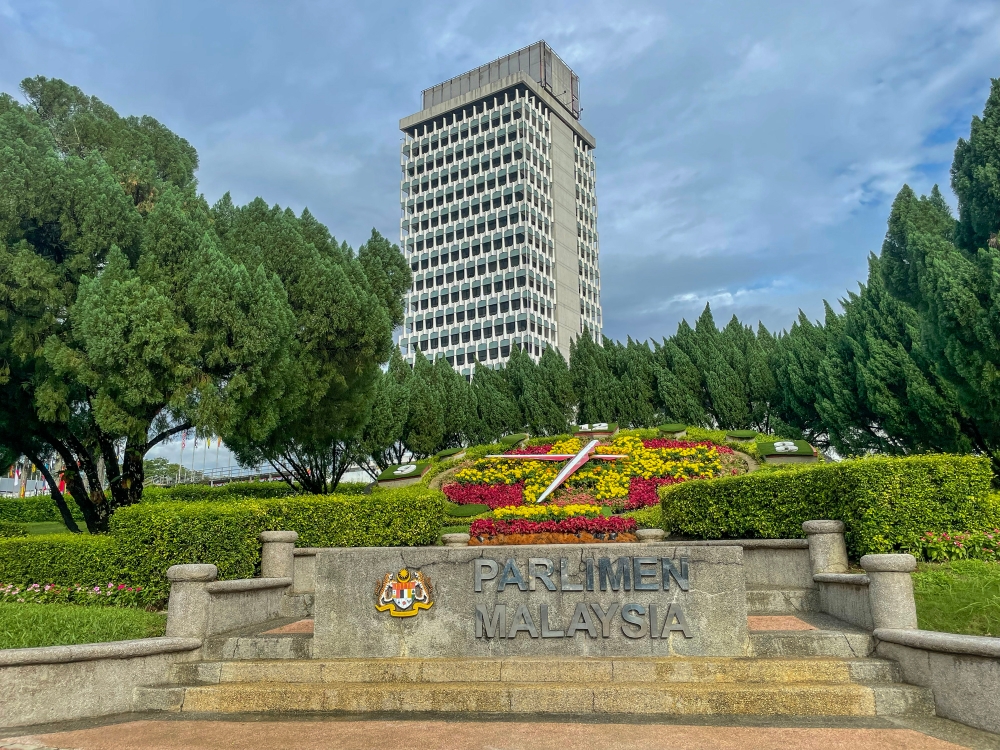APRIL 4 ― It was indeed a herculean task that Malaysia took on yesterday when the Parliament through a unanimous voice vote, passed the law to abolish the mandatory death penalty. This is indeed a huge step for Malaysia and hopefully will create a domino, snowball effect in the region.
Discussions that were mooted before Pakatan Harapan’s commitment in 2018 by the then Minister of Law and Parliamentary Affairs the late Datuk VK Liew to abolish the death penalty or the mandatory death penalty had set the narrative yesterday in spite of a change of prime minister and government to the tabling of the first and second reading the bill by Minister Azalina Othman and Deputy Minister Ramkarpal Singh under the stewardship we have today under Datuk Seri Anwar Ibrahim through his Malaysia Madani government.
What do the amendments mean?
It means that the court and judges will mete out punishments befitting the crime and unlike before, had their hands tied and their minds bound by the mandatory provisions in the law, today will be able to decide upon the full facts and evidence of the case.

After this amendment, Malaysia will still have the death penalty for 33 offences, in fact, one of the highest in the world. Many countries have reserved it for only the most heinous crime but I am confident, in time, we will unfold this next chapter on the effectiveness of the death penalty in Malaysia. This timely announcement in the earlier part of 2023 will give room for Malaysia to learn and inculcate best practices from abolitionist countries on how to move forward exponentially given the matter at the end of the line is a human life.
However, this amendment in law and on paper is not a silver bullet to reduce crime. In truth it will need a mindset shift of the Attorney General’s Chambers and also the Royal Malaysian Police (PDRM) in how serious the government is to fight crime and not end life. More than half on death row come from the B40 category and from marginalised groups. They often lack access to a loving home, education, early exposure to drugs and vice, access to a stable, safe and conducive environment, opportunities, job securities and the list goes on. This is in no way to defend or to justify actions of criminals but for society to understand that the ‘background factor’ is often not taken into account. Criminals are not born, but are made. One simply cannot speak of the abolition of the mandatory death penalty without speaking about these fundamental rights and why the government must do its best to provide for her people. A Government that does not take care and care for her people, has no business executing them.
The amendments do not in any way negate or trivialise the pain and the suffering of those who have lost loved ones at the hands of another, when in fact, is to ensure what happened to your loved ones never happen again.
The Covid pandemic exposed our broken and brittle system and opened up the Pandora’s box on mental health illnesses and the criminal responsibility or irresponsibility of crimes committed. There should be a greater investment in physical health and mental health assessments for those behind bars and those outside walking amongst us who are suffering in silence. Many have been battling demons in their minds for the longest time before acting on it.
Another aspect to this is a new Bill to review that status of those on death row today, approximately 1318, to have their sentences reviewed depending on which stage of the appeals process they are at.
Malaysia has been, over the past 10 years, studying, contemplating, advocating and moving in the direction to abolish the mandatory death penalty and yesterday April 3, 2023 saw the fruits of that labour and without the help and support of individuals and human rights organisations in Malaysia and abroad, this might have happened at a far slower rate or even not at all.
With the rise of dictatorships all over the world, it will be indeed tempting to use the death penalty as a political tool as we have seen in the region with the illegitimate Junta military in power to arbitrary executions in Iran of young men and women who dissent against the government, and the latest in Israel to bring back the death penalty on anyone who threatens the state. We, as part of the global community must ensure we do not see the return of the death penalty and this is why every single person has a vital role to play to ensure we never return to the ‘darker’ ages where capital punishment was meted out in the name of justice.
I sincerely hope that the Cabinet will make a sound decision to retain the moratorium given the last execution took place in 2017 and there have been non since. In addition, Malaysia also was amongst three other Asean countries to have voted “YES” in a moratorium on the death penalty.
Being a member of the UN Human Rights Council, this milestone will help Malaysia carve her name regionally and domestically as a nation that has taken her first step towards a more just, unprejudiced and fair Malaysia for all.
Bravo Malaysia!
* This is the personal opinion of the writer or publication and does not necessarily represent the views of Malay Mail.





















